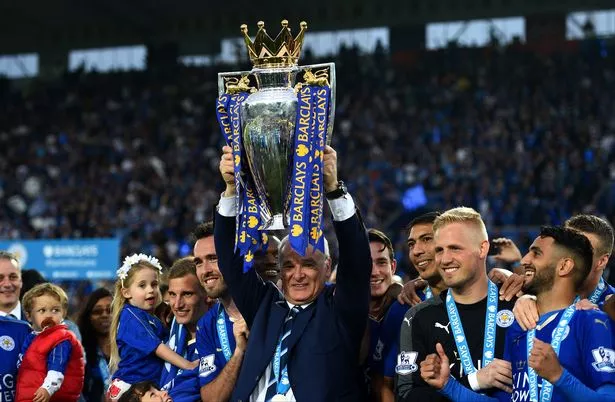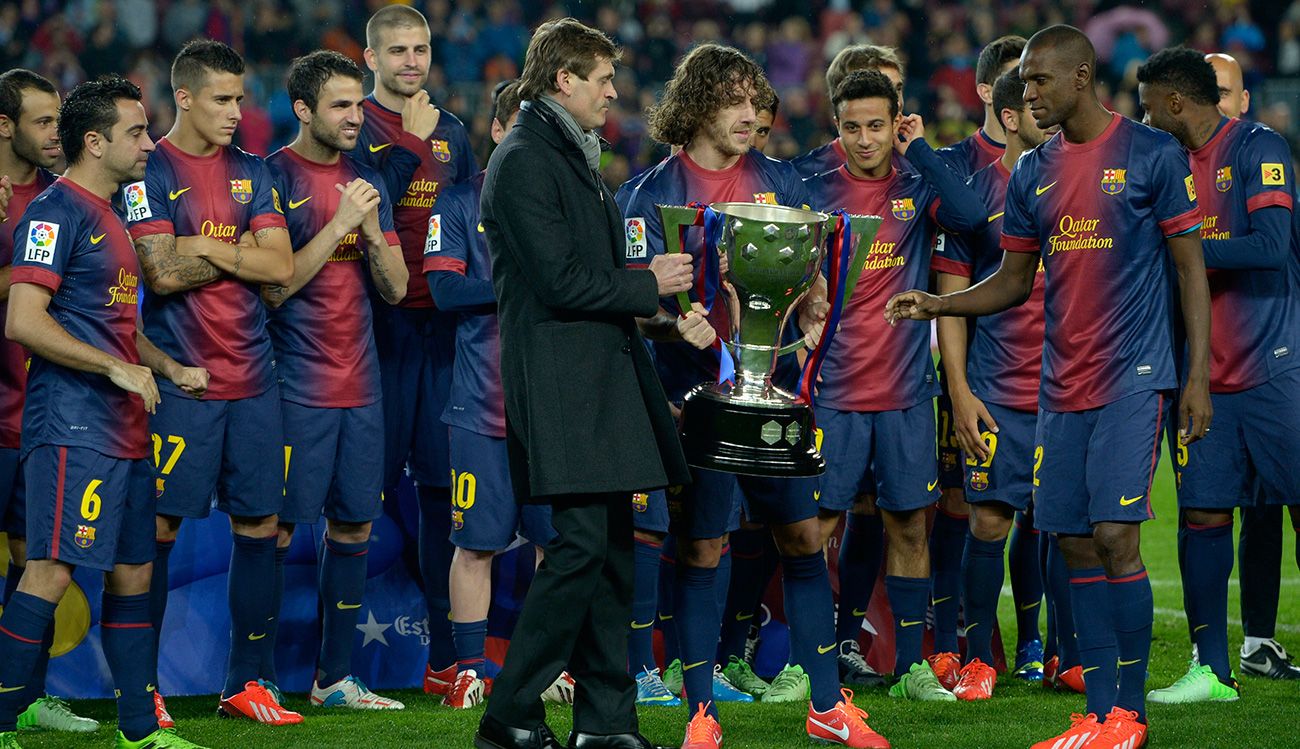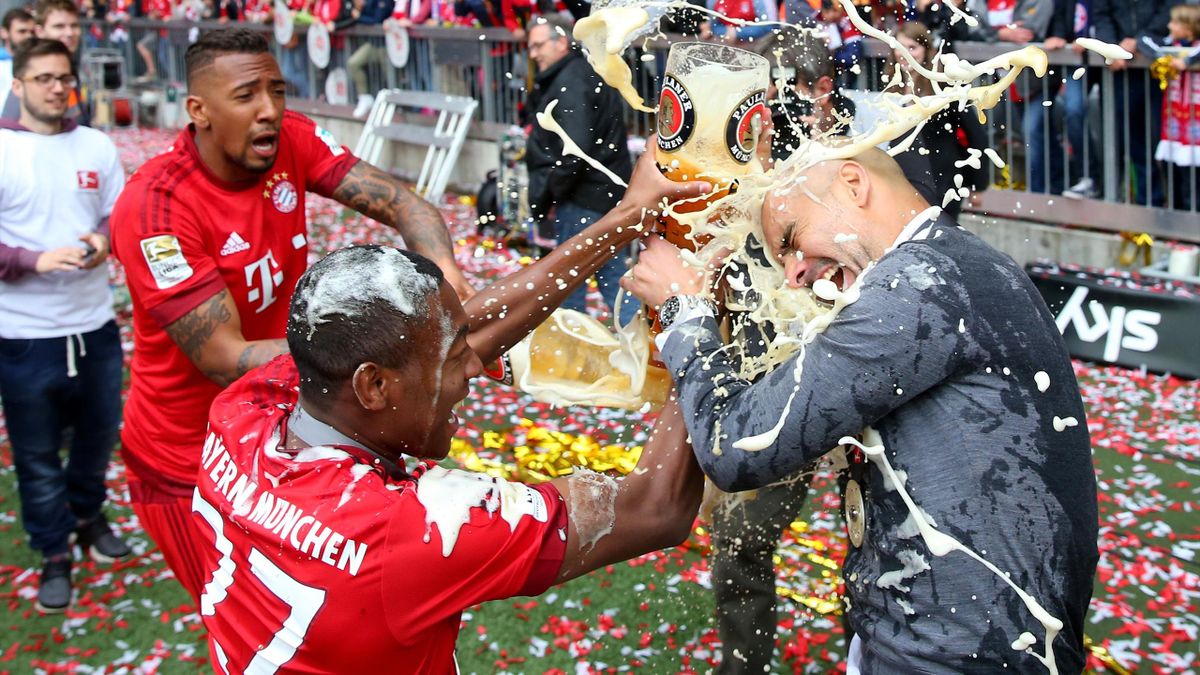

Football is a sport that constantly thrives on the talents and skills of its players, but behind every successful team lies a skilled and strategic mastermind – the manager. Football has witnessed numerous remarkable football manager starts throughout its history. In this blog, we explore the best football manager starts ever for the top five leagues in the world.

One such extraordinary trainer start occurred when John Gregory took over the reins at West Ham on the 25th of February 1998. At that time, the team found themselves languishing in the 14th position on the table. However, the team experienced an astonishing turnaround under Gregory’s astute leadership.
During his first fifteen matches in charge, Gregory guided West Ham to an impressive tally of 40 points. This remarkable feat propelled the team to the league’s pinnacle, securing the coveted 1st place position. Such a remarkable achievement within a short period is a testament to Gregory’s tactical understanding and ability to motivate his players.
When Antonio Conte assumed the managerial role at Chelsea, the team languished in a disappointing 10th place. However, within a relatively short time, Conte masterminded a remarkable resurgence that saw the team climb to the summit of the Premier League table. In his first 15 matches in charge, Conte’s tactical prowess and ability to inspire his players resulted in an impressive accumulation of 37 points.
Conte’s tenure at Chelsea lasted for 76 Premier League matches, during which he consistently demonstrated his managerial prowess. With an average of 2.12 points per match, he secured an enviable point tally and established a winning culture within the team. In his first season at the helm, he guided Chelsea to a well-deserved Premier League title, cementing his legacy as one of the most successful managers in the club’s history. The following year, Conte added to his accolades by leading Chelsea to victory in the FA Cup, further underlining his ability to bring silverware to the club.

When Claudio Ranieri took over Leicester City, they were stuck in a brutal fight to avoid getting relegated out of the league. But what happened next was just like a fairytale. Ranieri worked his magic and completely turned things around. In his first fifteen games as the boss, Leicester City scored 32 points. It was an unbelievable accomplishment that set the stage for their incredible journey.
Against all odds, Leicester City shattered expectations and snatched the Premier League title, creating a mind-blowing underdog story that shook the football world. Ranieri’s knack for unleashing the team’s potential, inspiring belief, and building an unbreakable bond played a crucial part in this historic triumph.
On the 26th of January 2021, the torch was to Thomas Tuchel at Chelsea. The team languished 9th place in the league with little hope of qualifying for the prestigious Champions League. However, Tuchel’s arrival marked a turning point in their fortunes, leading to an impressive resurgence.
In his first 15 matches in charge, Tuchel’s impact was immediately felt as Chelsea accumulated a commendable 32 points. This remarkable feat propelled the team from mid-table mediocrity to a formidable 4th place finish, securing their much-desired Champions League football for the following season. Under Tuchel’s guidance the following year, Chelsea achieved the pinnacle of European success. The team’s remarkable journey led them to triumph in the Champions League.
On the 2nd of February 1998, Glenn Roeder assumed the managerial position at Newcastle United with the daunting task of steering the team away from relegation. Under his guidance, Newcastle experienced a significant upturn in form and performance, culminating in a respectable finish in the league.
In Roeder’s first 15 matches in charge, Newcastle collected an impressive 32 points. This remarkable achievement propelled the team from their previous 15th-place position to a more commendable 7th place. Although Roeder’s tenure as Newcastle’s manager was relatively short-lived, spanning only 52 Premier League matches, his impact was notable.
On the 7th of September 1977, Luis Molowny assumed the managerial position at Real Madrid, with the team languishing in 13th place. Real Madrid, in dire need of a positive change, found exactly that with the appointment of Molowny, who orchestrated an impressive turnaround.
In Molowny’s first 15 matches in charge, Real Madrid amassed a remarkable 39 points. This outstanding achievement catapulted the team from their previous 13th-place position to the coveted top spot in the league. Molowny’s tactical acumen, strategic decisions, and ability to motivate his players were instrumental in the team’s remarkable resurgence.

On the 1st of July 2012, Tito Vilanova took over as the manager of FC Barcelona, responsible for maintaining the club’s success. In his initial fifteen matches, Vilanova’s impact was nothing short of exceptional. During this period, Vilanova’s FC Barcelona amassed a remarkable 43 points out of a possible 45, showcasing an incredible level of dominance on the field.
This outstanding achievement propelled the team to the pinnacle of La Liga, securing the coveted first-place position. Unfortunately, Vilanova’s promising season was cut short due to illness, forcing him to leave his managerial duties.
On the 10th of December, Juande Ramos assumed the managerial role at Real Madrid, taking charge of a team that found themselves in 5th place. With a remarkable display of tactical prowess and motivational skills, Ramos orchestrated an impressive resurgence that propelled Real Madrid up the league standings. During his first 15 matches in charge, Ramos guided Real Madrid on an outstanding run where they dropped a mere 5 points. This exceptional feat resulted in a remarkable climb to 2nd place in the league.
On the 9th of October, 2017, the legendary Jupp Heynckes made his grand return to Bayern Munich as their manager. Taking charge of a team sitting in 2nd place and still in contention for the title, Heynckes embarked on a sensational journey that etched his name in the club’s history books.
With Heynckes at the helm, Bayern Munich enjoyed an incredible wave of success. In his first 15 games, the team racked up an impressive 42 points, suffering just one defeat along the way. This extraordinary accomplishment catapulted Bayern Munich to the top of the league and opened up a massive 21-point gap between them and second-place Schalke, leaving their rivals in the dust.

On the 1st of July 2013, Pep Guardiola commenced his managerial journey at Bayern Munich, eager to test his skills in Germany following a successful period with FC Barcelona. In his first 15 matches, Guardiola made an immediate impact. Bayern Munich collected an impressive 41 points, displaying a remarkable goal difference of +32. This early success foreshadowed what was to come, setting the stage for a legendary season ahead.
Bayern Munich claimed the top spot in the league and achieved the remarkable feat of winning the treble. Finishing the season 19 points clear at the top of the league, Bayern Munich’s triumph was a testament to Guardiola’s ability to mould a star-studded squad into a cohesive unit capable of conquering all competitions. The treble-winning season marked an extraordinary achievement, solidifying Guardiola’s legacy as one of the greatest managers in football history.
At the beginning of the 2018/2019 season, Lucien Favre took the reins at Borussia Dortmund, inheriting a squad with the potential to challenge for the Bundesliga title. With a mix of promising young talents like Jadon Sancho and Christian Pulisic, along with experienced players such as Marco Reus and Mario Götze, Favre had a well-rounded team at his disposal.
In his first 15 matches as the manager, Favre orchestrated an impressive run, accumulating 39 points. This remarkable achievement propelled Dortmund from a fourth-place finish in the previous season to become genuine title contenders. They just missed out on the Bundesliga title. However, under Favre’s guidance, the team displayed an exciting and attacking style of play that captivated fans.
In 1949, Jesse Carver assumed the managerial position at Juventus. With his tactical thinking and strategic approach, Carver started a transformation that took Juventus to new heights.
In his first 15 matches in charge, Carver’s Juventus amassed an impressive 41 points, showcasing a goal difference of +30. This exceptional achievement placed Juventus at the top of the Serie A table and marked a significant turnaround from their previous disappointing 4th place position.
On the 9th of June 2017, Luciano Spalletti took charge of Inter Milan, with the team placed 7th in the league. Despite the team’s lack of real quality, Spalletti’s managerial prowess and tactical acumen led to a remarkable turnaround, propelling Inter Milan to the top of the table.
In his first 15 matches in charge, Spalletti’s Inter Milan amassed an impressive 39 points, reclaiming the first-place position. Although Inter Milan started strongly under Spalletti’s guidance, their momentum waned, and they ultimately finished in 4th place in the 2017/2018 season.
Following a disappointing 2018/2019 season where Inter Milan finished 4th, a significant distance behind Juventus, Antonio Conte took charge of the team with the aim of restoring their former glory. Under Conte’s leadership, Inter Milan started the season off strong.
In the first 15 matches of the season, Conte’s Inter Milan accumulated an impressive 38 points, placing them at the top of the Serie A table. The strong performance provided hope that Inter Milan could challenge for the Scudetto once again. Throughout the remainder of the season, Inter Milan maintained a consistent and strong form. However, despite their best efforts, they fell agonisingly short, finishing just 1 point behind Juventus in the race for the Scudetto.
After the departure of Unai Emery, Thomas Tuchel assumed the managerial position at PSG, following a season where the team had claimed the domestic league title but fell short in the Champions League. Tuchel’s arrival brought renewed hope for success in both domestic and European competitions. Out of his first 15 matches, the team drew only 1 game and emerged victorious in 14. Under Tuchel’s guidance, PSG went on to secure the domestic double, finishing the league campaign with a commanding lead, 16 points clear of second-placed Lille.
Despite their domestic success, PSG faced disappointment in the Champions League. They were eliminated in the round of 16 by Manchester United, falling short of their aspirations for European glory. The lack of progress in the Champions League ultimately impacted Tuchel’s tenure at the club. As he was sacked just one season later.
When Christophe Galtier took over as the coach of PSG, his appointment came with a clear objective: to lead the team to Champions League success. Unlike previous seasons, PSG opted for a more strategic approach in player signings rather than focusing on glamorous acquisitions.
Under Galtier’s guidance, PSG started their campaign strongly, accumulating an impressive 41 points in his first 15 matches as coach. This early success demonstrated the effectiveness of Galtier’s tactics and his ability to get the best out of his players. However, similar to his predecessor, Thomas Tuchel, Galtier’s tenure ultimately faltered due to the team’s inability to achieve Champions League success.
After a lacklustre season that saw PSG finishing a disappointing 13th, Gérard Houllier stepped in as the new boss with a clear mission: to bring PSG back to the pinnacle of French football. In his initial 15 games, Houllier worked his magic, leading PSG to an impressive 41 points. It was a powerful display of determination and raw talent. This scorching start catapulted PSG to the top of the Ligue 1 standings, signalling their triumphant return as a dominant force in French football.
The culmination of Houllier’s remarkable start came in the form of the Ligue 1 title, which PSG clinched under his expert guidance. It was a testament to the team’s resilience and the impact Houllier had in revitalising their fortunes.

The world of football has witnessed some truly remarkable starts from managers across the top five leagues. These coaches have made a lasting impression on their respective teams, including John Gregory at West Ham, Antonio Conte at Chelsea, Claudio Ranieri at Leicester City, Thomas Tüchel at Chelsea and PSG, Jupp Heynckes at Bayern Munich, and Gérard Houllier at PSG.
Their ability to motivate their teams, develop successful playstyles, and lead their players to great accomplishments demonstrates their managerial abilities. From relegation-threatened clubs to champions, from stunning comebacks to dominating campaigns, these managers have shown their value and cemented their position in football history.